Facelift in Yogyakarta
Search and Compare the Best Clinics and Doctors at the Lowest Prices for Facelift in Yogyakarta
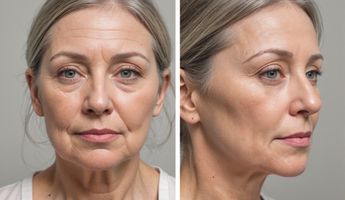
Find the best clinics for Facelift in Yogyakarta
With Medijump you can browse 1 facilities offering Facelift procedures in Yogyakarta. The cheapest price available is $1,290 in Bali. And for the cheapest price globally, prices start from $28 in Thailand.
Facelift in Indonesia
Price: $ 1,290
Facelift in Bali
Price: $ 1,290
Thailand offers the best prices Worldwide
Price: $ 28
Siloam Hospitals Yogyakarta, located in Central Yogyakarta, Yogyakarta, Indonesia offers patients Facelift procedures among its total of 353 available procedures, across 12 different specialties. Currently, there's no pricing information for Facelift procedures at Siloam Hospitals Yogyakarta, as all prices are available on request only, whilst the national average price is approximately $1,988. There is currently a lack of information available on the specialists practicing at the Hospital, and they are not accredited by any recognized accreditations institutes
Compare Before & After Photos of _procedure_photos.phpFacelift


Front view


Half-side view


Full-side view
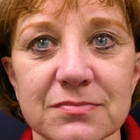
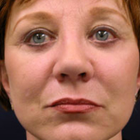
Front view

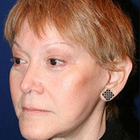
Half-side view
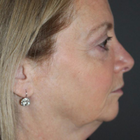
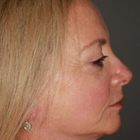
Full-side view
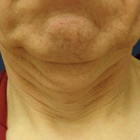
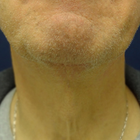
Front view

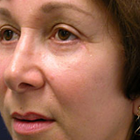
Half-side view
WHY US?
At Medijump, we're making medical easy. You can search, compare, discuss, and book your medical all in one place. We open the door to the best medical providers worldwide, saving you time and energy along the way, and it's all for FREE, no hidden fees, and no price markups guaranteed. So what are you waiting for?

Free

Best Price

Widest Selection

Risk-Free
What you need to know about Facelift in Yogyakarta

A facelift, also referred to as rhytidectomy, is a cosmetic surgery that aims to restore a more youthful facial appearance. It can reduce sagging or folds of skin on the cheeks, jawline, and other areas in the face that changes shape due to aging.
As we age, our skin loses their elasticity and become looser. Fat deposits also decrease in some areas and increase in others. This leads to sagging and wrinkles. With a facelift, these problems can be addressed by lifting and tightening the sagging facial tissue. The procedure may involve removing excess skin that’s causing “jowls”, smoothing out wrinkles or folds, and tightening facial tissue. It can also have a rejuvenating effect on the areas below the eyes and the deep lines from the corners of the mouth to the sides of the nose.
It is important to bear in mind that a facelift is not a treatment for creases around the nose, superficial wrinkles, and irregularities in skin color. It also cannot stop the aging process or change your fundamental appearance.
Although there are newer and less invasive facial rejuvenation procedure, a surgical facelift is still one of the most popular today. This is because the procedure offers the most dramatic results.
What is the cost of Facelift in Yogyakarta?
Many people take into account the cost of a Facelift in Yogyakarta very carefully because it differs greatly from one area or clinic to another. But the typical price normally includes the surgeon's fee, the facility fee, the cost of anaesthesia, and any required pre-operative diagnostics. The complexity of your case, the surgeon's experience, and his or her reputation all have a role in the procedure's ultimate cost, which is important to keep in mind. Remember that these expenses are an investment in your self-worth and personal fulfilment and could have a big impact on your quality of life.
What does a Facelift Procedure Involve?
In terms of aesthetics, your surgeon will recommend the best choice for your own comfort. You may
There are three types of incision used in a facelift, which depends on the degree of change you would like to see and the technique your surgeon will use.
- A traditional facelift incision starts at your temples in the hairline, continues around the ear and ends in behind your neck in the lower scalp. An incision may also be made under your chin to improve the look of the neck.
- A limited incision is shorter than traditional facelift incision. It starts in your hairline just above the ear, continues around the ear but does not extend to the lower scalp.
- Neck lift incisions begin in front of the earlobe, continues around your ear into the lower scalp. This type of incision addresses the sagging jowls, fat accumulation under the chin, and loose neck skin.
In general, your surgeon elevates the skin and tighten the underlying tissues and muscles after making an incision. Fat in your face and neck may be removed, sculpted, or redistributed. Then, the incision is stitched.
How Long Should I Stay in Yogyakarta for a Facelift Procedure?
You should be able to leave the hospital on the same day of the surgery if local anesthetic is used. However, if the surgery is done under general anesthetic, you may need to stay in the hospital for about 1 to 2 days. You should plan to stay in Yogyakarta for around 7 to 10 days following the surgery because you will have to attend follow-up checkups. During the checkups, your surgeon will monitor your healing and remove your stitches.
What's the Recovery Time for Facelift Procedures in Yogyakarta?
While recovering, it is beneficial to prop your head up and refrain from any heavy-duty tasks. Healthy eating habits and effective stress control can remarkably assist in your recuperation journey. A complete healing span could last for a few months, during which the puffiness slowly eases off and the cut marks become less noticeable. Diligently adhering to the post-surgery guidelines from your doctor and consistently showing up for all scheduled check-ups can contribute to a swift, seamless recovery.
Expect to experience bruising, swelling, and some discomfort for the first 3 to 5 days. You may be able to return to work and some light activities within 7 to 14 days, but avoid any vigorous activities for about 5 to 6 weeks. It may take 2 to 3 months until your face feels normal in terms of texture and sensibility.
What sort of Aftercare is Required for Facelift Procedures in Yogyakarta?
Your surgeon will provide detailed post-operative instruction. To avoid any complications and maximize the result, you need to follow all instructions closely. You may have to avoid any clothing that is pulled over the head, such as t-shirts and sweaters. You should also avoid using makeup and direct sun exposure for about three weeks, as well as coloring, bleaching, or perming your hair for six weeks following the surgery.
To maintain the results of your facelift, you need to avoid smoking, use sunblock, moisturize your face daily, maintain weight stability, follow a healthy diet plan, exercise regularly, and live a generally healthy lifestyle.
What's the Success Rate of Facelift Procedures in Yogyakarta?
Approximately 80% to 90% of people who had a facelift is reported to achieve a positive result after their procedure. However, although great results are expected after a facelift, there can be no guarantee. In some cases, you may need more than one surgery to achieve your desired result. To make sure your surgery is successful; you need to ensure your surgeon is skilled and experienced. You also have to follow your surgeon’s instructions, from the preparation to the aftercare.
Note that the results of a facelift are not permanent because no cosmetic procedure can stop aging. Your facial skin may begin to droop again as you age. The average facelift lasts between 7 and 10 years before you have aged enough to need additional work.
Are there Alternatives to Facelift Procedures in Yogyakarta?
If you do not want to (or cannot) undergo a facelift, you can opt for an alternative.
- Mini-facelift - a less invasive procedure that also aims to lift the wrinkles and sagging skin in the lower part of the face. Because it involves a smaller, s-shaped incision around the ear, it cannot address neck sagging or excess skin.
- Botox - it reduces the appearance of wrinkles and usually takes about 24 to 72 hours to take effect. A botox injection uses botulinum toxin to temporarily paralyze muscle activity.
- Fillers - unlike botox, fillers fill the line, crease, or the general facial area with different kinds of substances. These fillers can be used as “volumizers”, plumping and lifting your cheeks, jawline, and temple.
- Laser Skin Resurfacing - this works to give you a younger-looking facial skin by removing some skin layer by layer. Patients can get rid of scars, wrinkles, acne marks, and blotches.
- Ultherapy - this uses ultrasound to heat targeted tissue under the surface of your skin. The heat will then trigger the natural production of collagen. This procedure can be repeated 6 to 12 months because collagen usually takes very long to develop.
- LED - light-emitting diode therapy uses a variety of different colored lights to target various parts of your face. This is a pain-free procedure that treats acne, fine lines, wrinkles, pigmentations, acne scars, and rosacea.
What Should You Expect Before and After the Procedure
Before having the Facelift, you will meet with your surgeon to discuss your goals and what you expect to accomplish. Your medical history will be carefully reviewed at this meeting to ensure that the procedure is safe for you. Before the surgery, you might also need to get some routine health screenings to make sure you're in good health overall.
Expect to have bandages applied to your surgical wounds following the Facelift, and it's possible that a drain may be installed to collect extra fluid. Swelling and bruising are normal postoperative side effects, but these should progressively go away over a few weeks.
What are the Potential Risks of Facelift?
As with other surgical procedures, a facelift can carry some possible risks and complications, which may include:
- Hematoma
- Scarring and skin loss
- Hair loss
- Nerve injury (temporary or permanent changes in facial sensation or difficulties in moving facial muscles)
Some of these risks can be managed with appropriate care and medication. However, you need to be aware of the long term and permanent complications. While they are rare, they may alter your appearance significantly.
Whilst the information presented here has been accurately sourced and verified by a medical professional for its accuracy, it is still advised to consult with your doctor before pursuing a medical treatment at one of the listed medical providers
No Time?
Tell us what you're looking for and we'll reachout to the top clinics all at once
Enquire Now

Popular Procedures in Yogyakarta
Prices Start From $108

Prices Start From $1,945

Prices Start From $672

Prices Start From $275

Prices Start From $108

Recommended Medical Centers in Yogyakarta for Facelift

- Interpreter services
- Translation service
- Religious facilities
- Medical records transfer
- Medical travel insurance
- Health insurance coordination
- TV in the room
- Safe in the room
- Phone in the room
- Private rooms for patients available

- Interpreter services
- Translation service
- Religious facilities
- Medical records transfer
- Medical travel insurance
- Health insurance coordination
- TV in the room
- Safe in the room
- Phone in the room
- Private rooms for patients available

- Interpreter services
- Translation service
- Religious facilities
- Medical records transfer
- Medical travel insurance
- Health insurance coordination
- TV in the room
- Safe in the room
- Phone in the room
- Private rooms for patients available

- Interpreter services
- Translation service
- Religious facilities
- Medical records transfer
- Medical travel insurance
- Health insurance coordination
- TV in the room
- Safe in the room
- Phone in the room
- Private rooms for patients available

- Interpreter services
- Translation service
- Religious facilities
- Medical records transfer
- Medical travel insurance
- Health insurance coordination
- TV in the room
- Safe in the room
- Phone in the room
- Private rooms for patients available

- Interpreter services
- Translation service
- Religious facilities
- Medical records transfer
- Medical travel insurance
- Health insurance coordination
- TV in the room
- Safe in the room
- Phone in the room
- Private rooms for patients available

- Interpreter services
- Translation service
- Religious facilities
- Medical records transfer
- Medical travel insurance
- Health insurance coordination
- TV in the room
- Safe in the room
- Phone in the room
- Private rooms for patients available

- Interpreter services
- Translation service
- Religious facilities
- Medical records transfer
- Medical travel insurance
- Health insurance coordination
- TV in the room
- Safe in the room
- Phone in the room
- Private rooms for patients available

- Interpreter services
- Translation service
- Religious facilities
- Medical records transfer
- Medical travel insurance
- Health insurance coordination
- TV in the room
- Safe in the room
- Phone in the room
- Private rooms for patients available

- Interpreter services
- Translation service
- Religious facilities
- Medical records transfer
- Medical travel insurance
- Health insurance coordination
- TV in the room
- Safe in the room
- Phone in the room
- Private rooms for patients available
Facelift in and around Yogyakarta
Popular Searches
- Plastic Surgery in Thailand
- Dental Implants in Thailand
- Hair Transplant in Thailand
- Breast Augmentation Thailand
- Gastric Sleeve in Thailand
- Gender Reassignment Surgery in Thailand
- Laser Hair Removal in Bangkok
- Botox in Bangkok
- Dermatology in Bangkok
- Breast Augmentation in Bangkok
- Coolsculpting in Bangkok
- Veneers in Turkey
- Hair Transplant in Turkey
- Rhinoplasty in Turkey
- Stem Cell Therapy in Mexico
- Rhinoplasty in Mexico
- Liposuction in Mexico
- Coolsculpting in Tijuana
- Rhinoplasty in Korea
- Scar Removal in Korea
- Gastric Sleeve in Turkey
- Bone Marrow Transplant in India
- Invisalign in Malaysia
- Plastic Surgery in the Dominican Republic
- Tummy Tuck in the Dominican Republic
- Plastic and Cosmetic Surgery in Poland
- Rhinoplasty in Poland
- Hair Implant in Poland
- Dental Implants in Poland
- IVF in Turkey
